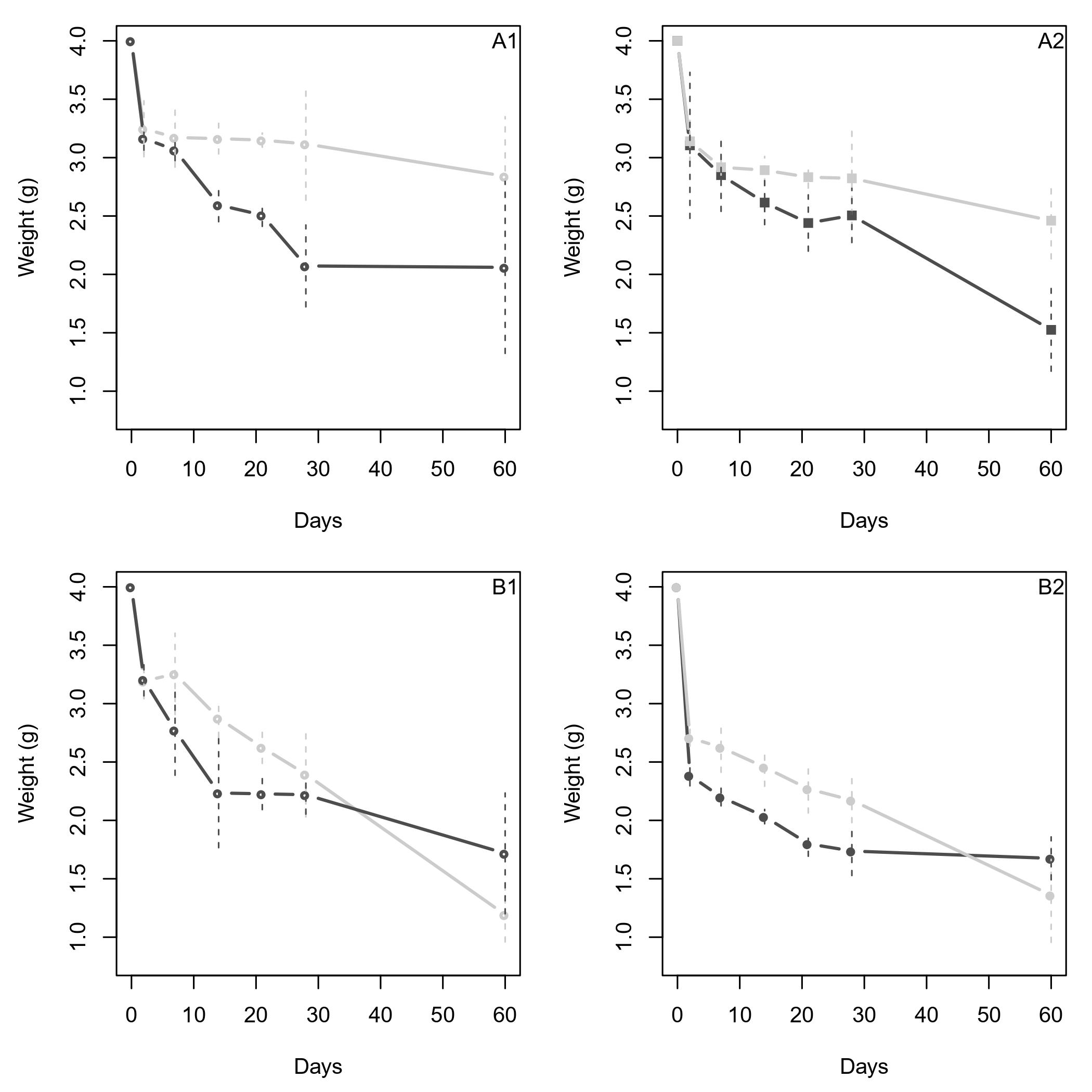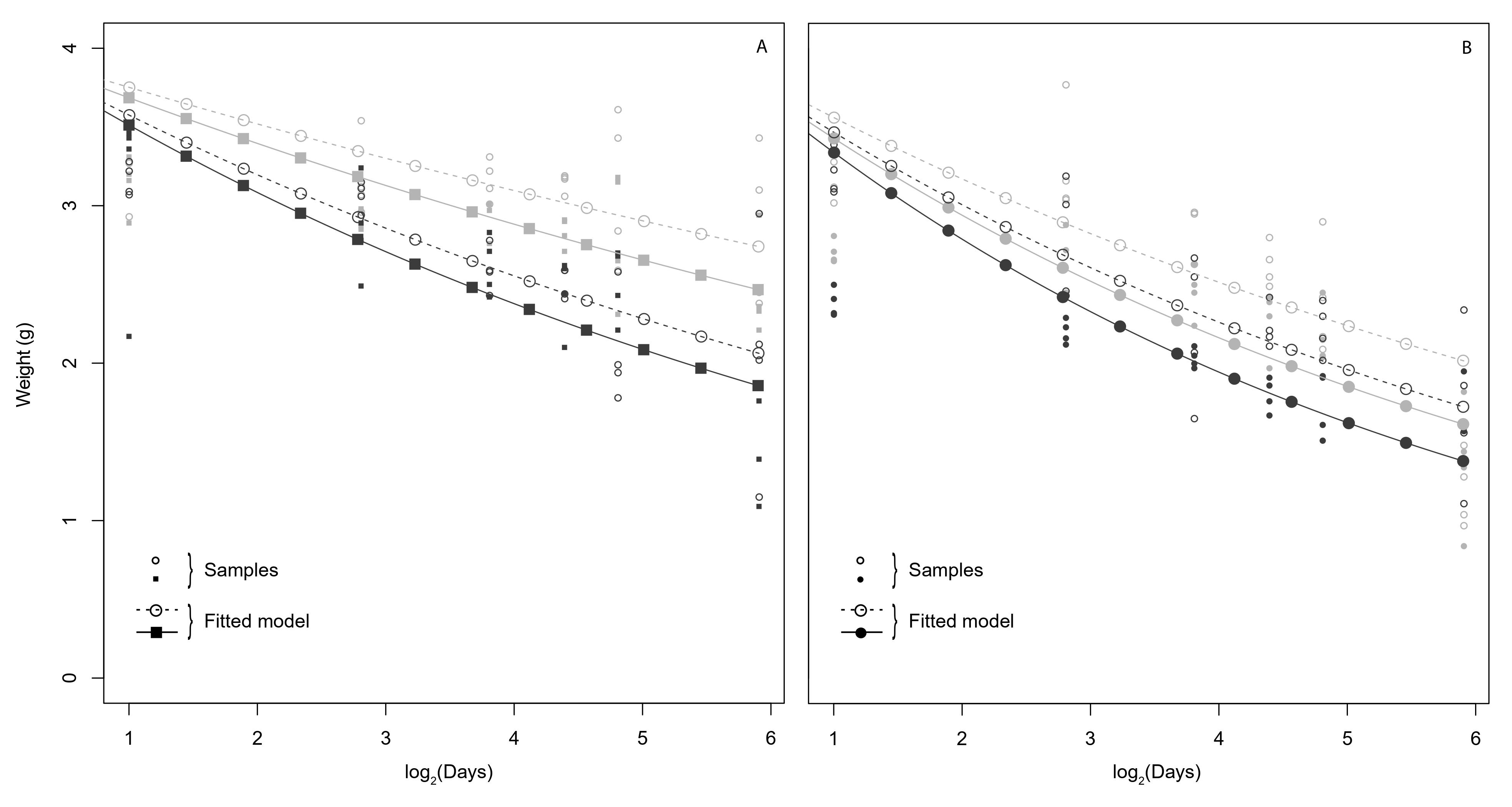Abstract
Aim
We evaluated the leaf decomposition in a first order stream of the exotic Eucalyptus grandis and two native species Lithraea molleoides and Maytenus aquifolium common riparian trees in a tropical forest. Besides seasonal effects on leaf decomposition of the three species were evaluated.
Methods
The dried leaves were incubated in litter bags” of 20 x 20 cm with 10 mm of mesh opening in two different treatments and at two times of the year (dry and rainy): i) 48 “litter bags” containing 4 g of leaves, being 24 “litter bags” with leaves of L. molleoides and 24 with E. grandis and ii) 48 “litter bags” containing 4 g of leaves, being 24 “litter bags” with of M. aquifolium and 24 with leaves of E. grandis. After 2, 7, 14, 21, 28 and 60 days of immersion, randomly removed four “litter bags” of each species to carry out the analyzes.
Results
The weight loss in the first two days was between 20% and 40% in both experiments and in both seasons of the year. Leaf decomposition was higher in L. molleoides (k=0.0062 ± 0.0002 day-1) than in E. grandis (k=0.0039 ± 0.0005 day-1) in the dry season and higher in L. molleoides (k=0.0185 ± 0.0002 day-1) than E. grandis (k=0.0164 ± 0.0003 day-1) in the rainy season. In the second experiment the decomposition rates were higher in M. aquifolium (k=0.0151 ± 0.0009 day-1) than E. grandis (k=0.0149 ± 0.0006 day-1) in the dry season and higher in M. aquifolium (k=0.0174 ± 0.0001 day-1) than E. grandis (k=0.0164 ± 0.0002 day-1) in the rainy season. Besides, the results indicate that there is an effect of both the dry and rainy season and the native or exotic species on the decomposition rates.
Conclusions
Our findings indicate that, the seasons are likely to influence leaf decomposition, and future studies should consider seasonality. Furthermore, the exotic species had a lower decomposition rate compared to native species, which reinforces that the replacement of native riparian vegetation by exotic species such as eucalyptus can interfere on the quality of allochthonous resources and on the cycling of nutrients in neotropical streams.
Keywords:
leaf decomposition; riparian forest; seasonality; negative exponential model

 Thumbnail
Thumbnail
 Thumbnail
Thumbnail

